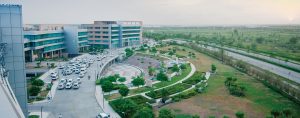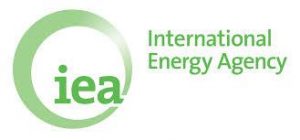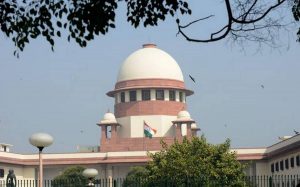Today Current Affairs: 26th July 2021 for UPSC IAS exams, State PSC exams, SSC CGL, State SSC, RRB, Railways, Banking Exam & IBPS, etc
Table of Contents
Antimicrobial Resistance (AMR):

The Ministry of Health and Family Welfare highlighted various measures to address the challenges posed by Antimicrobial Resistance (AMR) in the country.
- Antimicrobial resistance is the resistance acquired by any microorganism (bacteria, viruses, fungi, parasite, etc.) against antimicrobial drugs (such as antibiotics, antifungals, antivirals, antimalarials, and anthelmintics) that are used to treat infections.
- As a result, standard treatments become ineffective, infections persist and may spread to others.
- Microorganisms that develop antimicrobial resistance are sometimes referred to as “superbugs”.
- The misuse of antimicrobials in medicine and inappropriate use in agriculture.
- Contamination around pharmaceutical manufacturing sites where untreated waste releases large amounts of active antimicrobials into the environment.
AMR in India:
- India, with its combination of large population, rising incomes that facilitate purchase of antibiotics, high burden of infectious diseases and easy over-the-counter access to antibiotics, is an important locus for the generation of resistance genes (such genes help bacteria in surviving on being exposed to antibiotics).
- The multi-drug resistance determinant, New Delhi Metallo-beta-lactamase-1 (NDM-1), emerged from this region to spread globally.
- Africa, Europe and other parts of Asia have also been affected by multi-drug resistant typhoid originating from South Asia.
- In India, over 56,000 newborn deaths each year due to sepsis are caused by organisms that are resistant to first line antibiotics.
Special Economic Zones (SEZ):

Special Economic Zones (SEZ) have touched new heights in terms of performance in Exports, Investment and Employment in the last three years.
- An SEZ is a territory within a country that is typically duty-free (Fiscal Concession) and has different business and commercial laws chiefly to encourage investment and create employment.
- SEZs are created also to better administer these areas, thereby increasing the ease of doing business.
SEZs in India:
- Asia’s first EPZ (Export Processing Zones) was established in 1965 at Kandla, Gujarat.
- While these EPZs had a similar structure to SEZs, the government began to establish SEZs in 2000 under the Foreign Trade Policy to redress the infrastructural and bureaucratic challenges that were seen to have limited the success of EPZs.
- The Special Economic Zones Act was passed in 2005. The Act came into force along with the SEZ Rules in 2006.
- However, SEZs were operational in India from 2000 to 2006 (under the Foreign Trade Policy).
India’s SEZs were structured closely with China’s successful model. - Presently, 379 SEZs are notified, out of which 265 are operational.
- About 64% of the SEZs are located in five states – Tamil Nadu, Telangana, Karnataka, Andhra Pradesh and Maharashtra.
- The Board of Approval is the apex body and is headed by the Secretary, Department of Commerce (Ministry of Commerce and Industry).
- The Baba Kalyani led committee was constituted by the Ministry of Commerce and Industry to study the existing SEZ policy of India and had submitted its recommendations in November 2018.
- It was set up with a broad objective to evaluate the SEZ policy towards making it WTO (World Trade Organisation) -compatible and to bring in global best practices to maximise capacity utilisation and to maximise potential output of the SEZs.
Performance so far:
- Exports: Exports of Rs. 22,840 Crore (2005-06) has increased to Rs. 7,59,524 Crore (2020-21).
- Investment: Investment of Rs. 4,035.51 Crore (2005-06) has increased to Rs. 6,17,499 Crore (2020-21).
- Employment: Employment from 1,34,704 persons (2005-06) has increased to 23,58,136 persons (2020-21).
Renewables Integration In India 2021:

A report on “Renewables Integration in India 2021” was jointly launched by NITI Aayog and International Energy Agency (IEA).
- The report is based on the outcome of three states workshops held with the Governments of Maharashtra, Karnataka and Gujarat to understand the specific energy transition challenges faced by these renewable-rich states.
- The report highlights that India’s power system can efficiently integrate renewables (175 GW by 2022 and 450 GW by 2030), but it would require identification of resources and proper planning, regulatory, policy and institutional support, energy storage and advance technology initiatives.
- Indian states need to employ a wide range of flexibility options – such as demand response, more flexible operation of coal based power plants, storage, and grid improvements – to transition to cleaner electricity systems.
- Larger shares of renewables can be better managed by shifting time of use in agriculture. Time of Use (ToU) tariffs will be an effective tool to incentivise demand side management and encourage flexible consumption.
Global Survey On Digital And Sustainable Trade Facilitation: UN:

India has scored 90.32% in United Nation’s Economic and Social Commission for Asia Pacific’s (UNESCAP) latest Global Survey on Digital and Sustainable Trade Facilitation. The Survey hails this as a remarkable jump from 78.49% in 2019.
- After evaluation of 143 economies, the 2021 Survey has highlighted India’s significant improvement in the scores on all 5 key indicators, as follows:
- Transparency:100% in 2021 (from 93.33% in 2019)
- Formalities: 95.83% in 2021 (from 87.5% in 2019)
- Institutional Arrangement and Cooperation: 88.89% in 2021 (from 66.67% in 2019)
- Paperless Trade: 96.3% in 2021 (from 81.48% in 2019)
- Cross-Border Paperless Trade: 66.67% in 2021 (from 55.56% in 2019)
- India is the best performing country when compared to South and South West Asia region (63.12%) and Asia Pacific region (65.85%).
- The overall score of India has also been found to be greater than many OECD countries including France, UK, Canada, Norway, Finland etc. and the overall score is greater than the average score of EU.
- India has achieved a 100% score for the Transparency index and 66% in the “Women in trade” component.
- CBIC, has been at forefront of path breaking reforms under the umbrella of ‘Turant’ Customs to usher in a Faceless, Paperless and Contactless Customs by way of a series of reforms. This has had a direct impact in terms of the improvement in the UNESCAP rankings
- The Global Survey on Digital and Sustainable Trade Facilitation is conducted every two years by UNESCAP.
- The 2021 Survey includes an assessment of 58 trade facilitation measures covered by the WTO’s Trade Facilitation Agreement.
Alexander Dalrymple Award:

Vice Admiral Vinay Badhwar, Chief Hydrographer to the Govt. of India received the Alexander Dalrymple award from the British High Commissioner.
- Vice Admiral Vinay Badhwar was conferred with the prestigious award in 2019 but the award ceremony was delayed due to the ongoing pandemic.
- The Alexander Dalrymple award has been named after the first hydrographer of the Admiralty and was instituted in 2006.
- Alexander Dalrymple (1737 – 1808) was a Scottish geographer and the first Hydrographer of the British Admiralty.
- He was the main proponent of the theory that there existed a vast undiscovered continent in the South Pacific, Terra Australis Incognita.
- He produced thousands of nautical charts, mapping a remarkable number of seas and oceans for the first time, and contributing significantly to the safety of shipping.
Right To Be Forgotten:
Ashutosh Kaushik who won reality shows Bigg Boss in 2008 and MTV Roadies 5.0 has approached the Delhi High Court with a plea saying that his videos, photographs and articles etc. be removed from the internet citing his “Right to be Forgotten”
- In the plea, Kaushik maintains that the “Right to be Forgotten” goes in sync with the “Right to Privacy”, which is an integral part of Article 21 of the Constitution, which concerns the right to life.
- The Right to be Forgotten falls under the purview of an individual’s right to privacy, which is governed by the Personal Data Protection Bill that is yet to be passed by Parliament.
- In 2017, the Right to Privacy was declared a fundamental right by the Supreme Court in its landmark verdict.
- The Personal Data Protection Bill was introduced in Lok Sabha on December 11, 2019 and it aims to set out provisions meant for the protection of the personal data of individuals.
- Clause 20 under Chapter V of this draft bill titled “Rights of Data Principal” mentions the “Right to be Forgotten.”
- It states that the “data principal (the person to whom the data is related) shall have the right to restrict or prevent the continuing disclosure of his personal data by a data fiduciary”.
- A data fiduciary means any person, including the State, a company, any juristic entity or any individual who alone or in conjunction with others determines the purpose and means of processing of personal data.
Secrecy Of Vote: Highlights Of The Latest Judgement::

The Supreme Court of India held that in any election, be it to Parliament or State legislature, the maintenance of secrecy of voting is “a must”.
- It reiterated its 2013 judgement in the People’s Union for Civil Liberties case.
Highlights of the Latest Judgement:
- Part of Fundamental Right: The secrecy is a part of the fundamental right of freedom of expression.
- The confidentiality of choice strengthened democracy.
- Part of Basic Structure: Democracy and free elections were a part of the Basic Structure of the Constitution.
- The concept of ‘basic structure’ came into existence in the landmark judgment in Kesavananda Bharati vs State of Kerala case (1973).
- On Booth Capturing: Booth capturing and/or bogus voting should be dealt with iron hands, because it ultimately affects the rule of law and democracy.
- Nobody can be permitted to dilute the right to free and fair election.
- On Unlawful Assembly: Once the unlawful assembly is established in prosecution of the common object, each member of the unlawful assembly is guilty of the offence of rioting.
- The use of the force, even though it be the slightest possible character by any one member of the assembly, once established as unlawful constitutes rioting.
- It is not necessary that force or violence must be by all but the liability accrues to all the members of the unlawful assembly.
- The definition of ‘unlawful assembly’, according to Indian law, is laid down in Section 141 of the Indian Penal Code
NIMHANS:Set Of Guidelines On The Management Of Mental Health Issues:

Acting on the request of the Ministry of Home Affairs, NIMHANS, an Institute of National Importance, issued a set of guidelines on the management of mental health issues of the prisoners and prison staff.
NIMHANS Guidelines:
- Gatekeeper Model for Identification of Mental Illness:
- In this model, selected inmates, trained to identify prisoners at risk of suicide, would refer them to treatment or supportive services.
- It is a step to prevent suicides triggered by mental health issues in prisons across the country.
- There is prevalence of mental illness and substance use disorder in about 80% of the prison population.
- For Mental Health Treatment:
- Prisoners with mental disorders had to be regularly assessed for severity of suicidal risk and also put on regular and supervised medication.
- To address the prisoner’s mental health needs, the correctional facility should have links to community-based initiatives like the District Mental Health Programme.
- Buddy System for Social Intervention:
- It is a type of social support through trained prisoners called “buddies” or “listeners”.
- It was found to have a good impact on the well-being of suicidal prisoners. Periodic telephone conversations with friends and family would also foster support.
- e-Mulakat is an online platform enabling relatives/friends/ advocates of prisoners to book prior appointments for interviewing prisoners through the National Prisons Information Portal.




